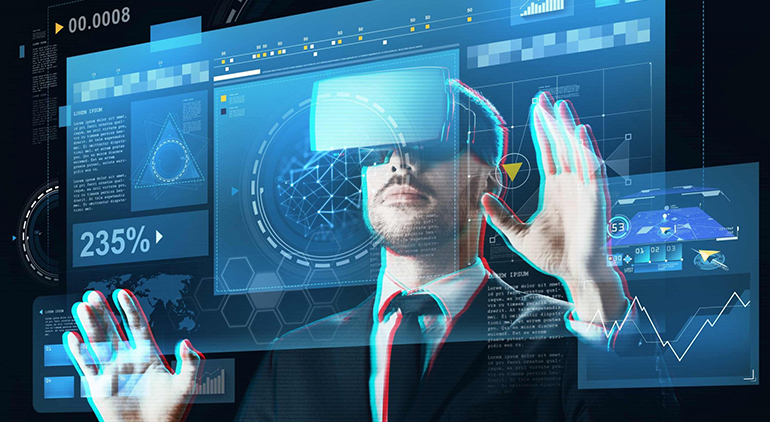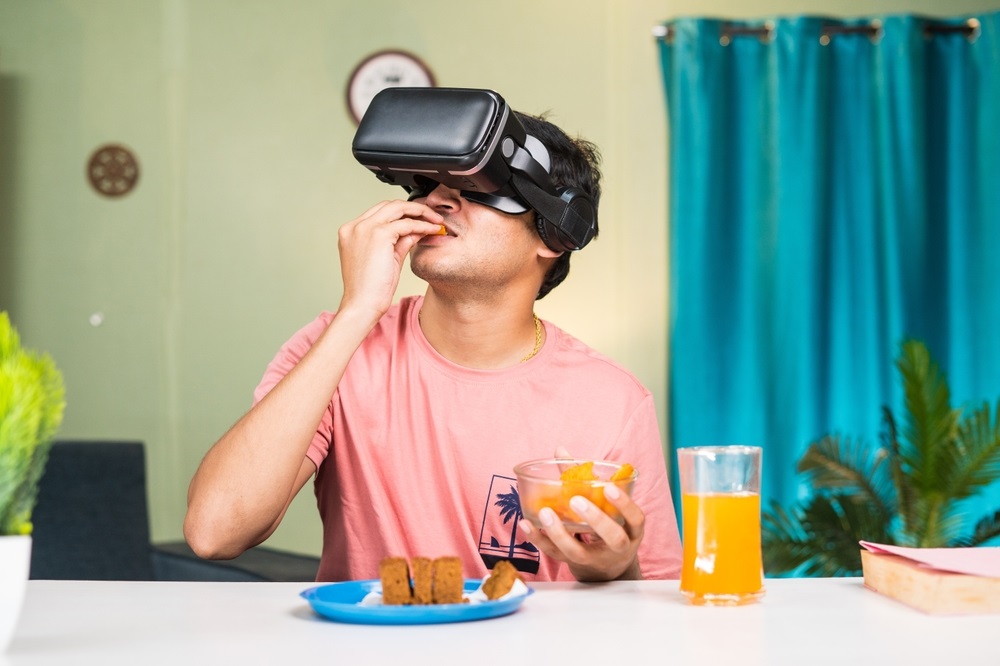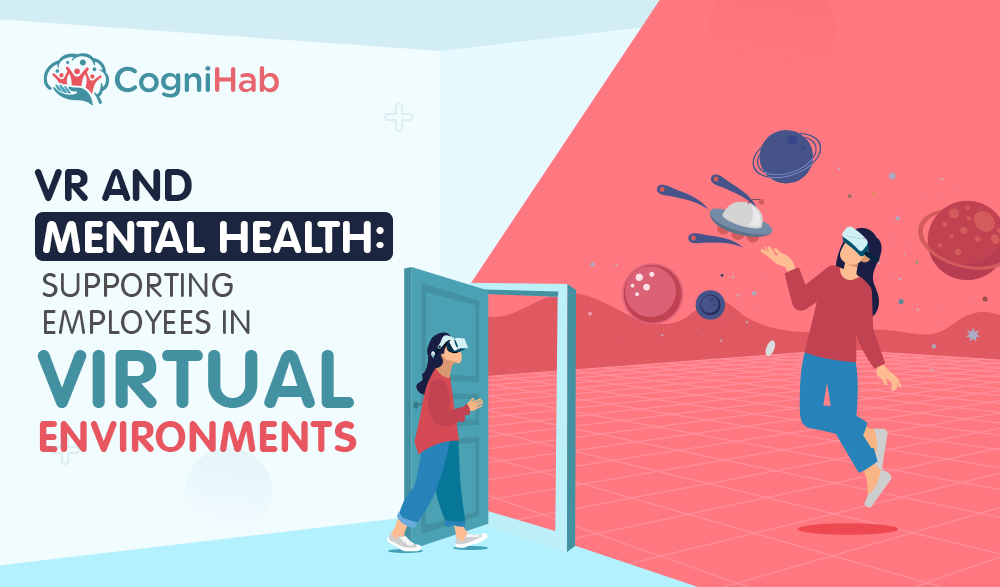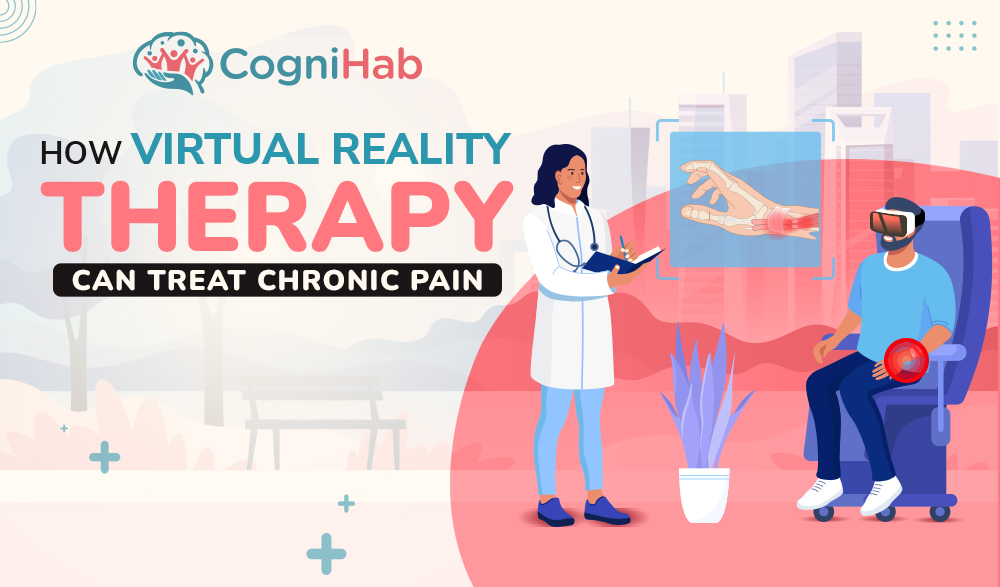COVID-19 Impact on Augmented And Virtual Reality In The Healthcare Market
Across the world, humanity is experiencing an unprecedented moment now. With the advent of the global pandemic due to the spread of the coronavirus, multiple nations have seen lockdown, changed social interactions, and challenging isolations.
The hospital beds are teeming with patients making this testing time more difficult, as the healthcare sector is trying to grapple with the virus. In this testing time, the healthcare sector is trying to adapt to immense changes to cope up with the pandemic.
COVID-19 Impact On AR/VR In Healthcare
Augmented reality technology facilitates computer-generated data, information, or imagery to overlay physical objects precisely in real-time. The information rendered by augmented reality assists people to perform tasks in the real world by enhancing the perception of the users.
Augmented reality’s benefits for the healthcare sector are manifold. This is primarily because augmented reality works on components such as sensors, displays, embedded electronic devices.
Virtual reality technology facilitates a virtual environment for the users. This simulated environment is created with the help of computer hardware and software. The completely immersive environment enables the users to interact with any object, just in a similar way of interacting with the objects in the real world.
It creates an illusion in the mind of the readers that the objects are a part of the environment. Virtual reality technology is based on components such as gesture recognition systems that consequently assist the processor to identify the input and execute the output in such a way, that the user feels simulation of the real world even in the virtual environment.
Hence the augmented reality technology is being fully utilized by the healthcare sectors to provide patients with more personalized and integrated experiences.
Covid-19 impact on augmented reality and virtual reality in healthcare is a significant one. It has been estimated that augmented reality in the healthcare market will reach USD 1. 32 billion by 2023. 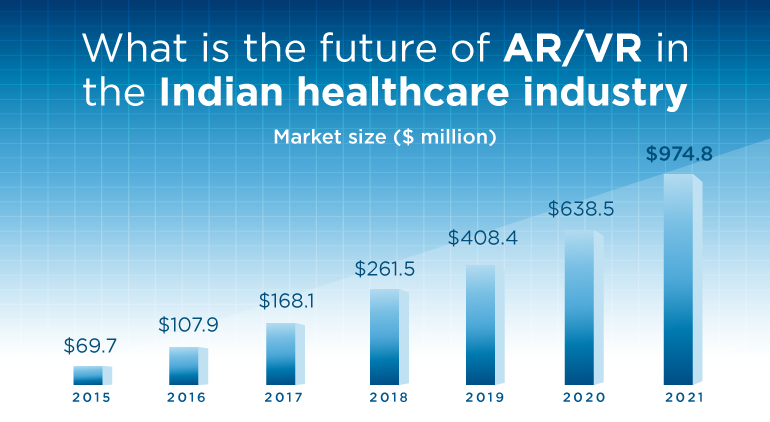 There are various factors that are responsible for the rise in global augmented reality in the healthcare market. These include demand for augmented reality in developing industries, rapid development and significant investment in AR healthcare, rising distribution of connected devices, and the need to decrease the cost of the healthcare sector, etc.
There are various factors that are responsible for the rise in global augmented reality in the healthcare market. These include demand for augmented reality in developing industries, rapid development and significant investment in AR healthcare, rising distribution of connected devices, and the need to decrease the cost of the healthcare sector, etc.
Additional factors that have aided the augmented reality healthcare market growth are rapid digitalization of healthcare, training of healthcare experts, improving the delivery of effective health services, large-scale acceptance, and incorporation of technological advancements in the healthcare sector.
Augmented reality is the interactive experience of the real-world experience, where objects of the real world are generally augmented through perceptual information. This information is computer-generated and consolidates various sensory modalities such as somatosensory, auditory, and visual.
Due to its impeccable features and various benefits, augmented reality has various applications, including medical training and education, patient education and management, and others.
Due to the spike in Covid-19 cases, the hospitals are not being able to accommodate and treat the growing number of affected new patients due to lack of vacant beds, staff, enough critical care services, and equipment such as ventilators, oxygen supply, etc.
In this grim situation, augmented reality is aiding the healthcare experts in several ways such as telemonitoring, disease awareness, medical marketing, medical education and training, managing patients’ lifestyles and wellness for improved patient care and treatment while they are being advised to home quarantine themselves.
Therefore, while the healthcare sector is undergoing tremendous turbulence across the world in treating patients through the traditional methods, augmented and virtual reality is emerging as the new improved way of treating patients where they can get doctor’s advice, critical care with real-time feedback from caregivers across the globe.
COVID-19 impact analysis on the healthcare industry
The healthcare sector is at the epicenter of this unprecedented global pandemic challenge. The continuous rise in positive cases is generating the demand for medical ventilators across the globe.
It has been observed that around 5% of the total positive Covid-19 cases are severe that require ventilators for relieving the patients of breathing problems.
Virtual reality and Augmented reality are playing a vital role in handling the ongoing pandemic situation effectively. AR and VR can be used for proper communications to treat and spread awareness concerning this disease. This technology is helpful for virtual rehabilitation and pain management of an infected patient during the treatment.
Virtual and Augmented reality develop a platform that reduces the face-to-face interaction of doctors with infected patients. It helps to improve the surveillance system of the ongoing situation through live video streaming.
The technology of VR and AR is rapidly changing the traditional methodologies of medical learning and handling of cases.
Cognihab is on the mission to become the world’s first and only augmented and virtual reality healthcare solution provider, helping patients to conquer their limitations and difficulties to rejuvenate, rehabilitate and rewire the mind, body, and soul.
Through the technology of virtual reality, Cognihab is ensuring the accuracy and efficacy of the adopted actions, improved working proficiency by well-trained medical staff, which can significantly impact the handling of the ongoing Covid-19 pandemic effectively.


